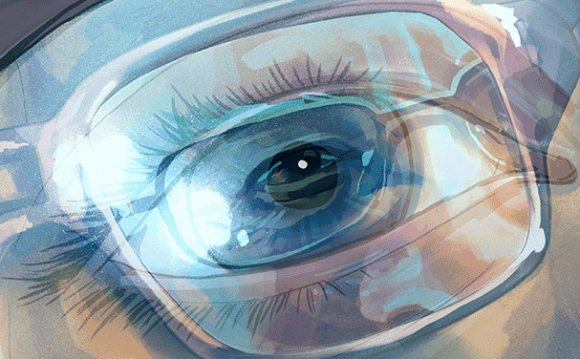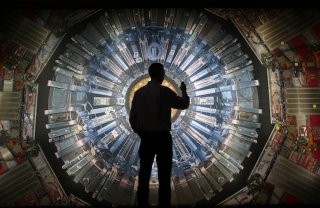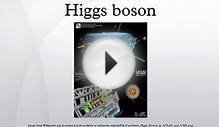
 (Photo : Getty Images/Peter Macdiarmid ) Scientists may have discovered a new particle in nature - or it could be a glitch.
(Photo : Getty Images/Peter Macdiarmid ) Scientists may have discovered a new particle in nature - or it could be a glitch.
Scientists may have discovered a new particle in nature - or it could be a glitch.
A tiny "bump" in datasets from two detectors in the Large Hadron Collider (LHC) has caused excitement in the scientific community, as it could signify the discovery of a new particle, writes Discovery News.
Since the discovery of the Higgs boson in 2012, the particle accelerator has been upgraded to accommodate higher energy collisions, known as the "Run 2" phase. The LHC accelerates particles around a 17-mile circumference ring of supercooled electromagnets at 13 teraelectronvolts (TeV) - an energy nearly double that which was used to discover the Higgs boson.
Several experiments are situated around the electromagnetic ring. These experiments are building-sized detectors that are highly sensitive to particles by collisions generated when two counter-rotating "beams" of hadrons are forced to collide. Since the counter-rotating beams are traveling at relativistic speeds, any collisions that occur create conditions that have not existed since the Big Bang.
According to the Big Bang theory, all energy in the universe was created from an infinitely dense singularity 14 billion years ago. As the universe cooled, the energy was directed into the formation of subatomic particles that eventually condensed to form matter.
By recreating Big Bang conditions, physicists can observe the creation of primordial particles by Nature, providing a definitive test for physics theories on the particles that are possible in our universe. Finding the Higgs confirmed that the Standard Model of physics correctly described all particles and forces in the cosmos that we know of.
Despite the confirmation of the Standard Model, many mysteries remain - including the mystery of gravity, which cannot be described by this model. Physicists are now looking beyond this model, and entering a realm known as "exotic physics." By exploring this realm, physicists hope to find evidence of dark matter particles as well as other many other mysteries of the cosmos.
Inside two of the same LHC experiments that led to the discovery of the Higgs Boson, a small anomaly in energy at around 750 GeV has been detected, according to Run 2 preliminary results from the CMS and ATLAS detectors.
"We've been working round-the-clock to understand and triple-check our numbers, and (Dec. 15) was the culmination of the year's worth of work by thousands of people, " said particle physicist James Beacham, a post-doctoral research fellow with the Ohio State University, in an interview with Discovery News.
When new particles are produced by the collisions, they typically decay quickly. But they produce other particles as they decay, which might also be detected by LHC experiments.
The signature of the signal can act as a fingerprint - revealing the identity of the decaying particle. As more data is collected from the billions of collisions that occur, small bumps in the data could go beyond what the Standard Model is able to predict. The bumps are referred to as "excesses" and often indicate that a new particle has been produced.
"The diphoton search, the one that has the most significant excess, is interesting because it could possibly discover things like exotic Higgs bosons or gravitons (the as-yet-undiscovered particles of gravity), " Beacham told Discovery News. "Both of these discoveries would be revolutionary, because they'd be concrete evidence of physics beyond-the-Standard-Model, something we've never seen."
While the bump was tiny and could prove insignificant - another detector, The CMS, also picked up on a small signal in the same energy range.
The new phase of collisions is still in its infancy, but if the signal is confirmed, it could indicate the presence of something like a bigger Higgs boson particle.
INTERESTING VIDEO











